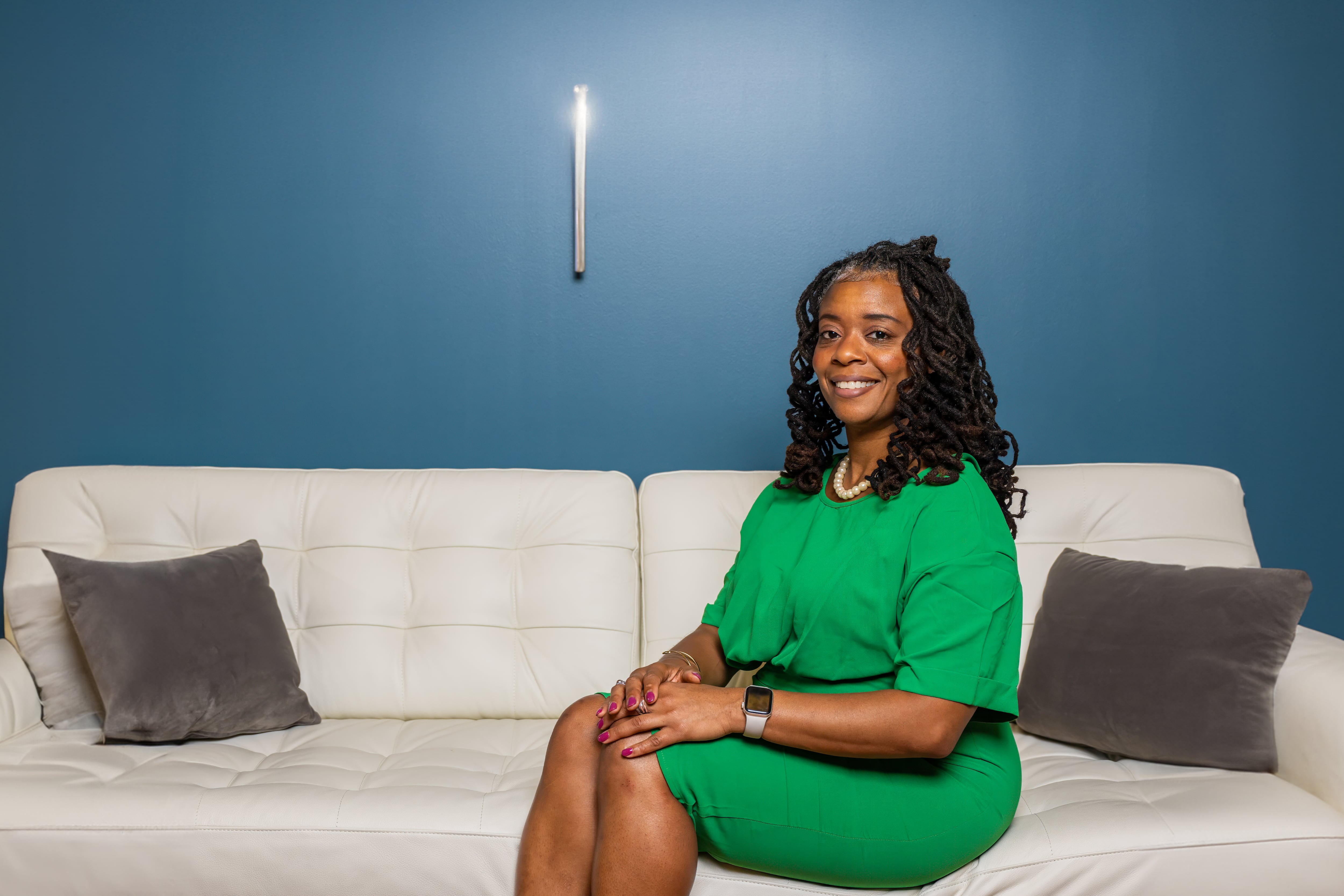Years ago, while an intern with Bridge Builders, a Memphis program designed to help youths think critically and resolve conflicts, someone told Crystal L. Johnson that she had good rapport with the young people.
Johnson ultimately parlayed that compliment, as well as her diploma from Overton High School for the creative and performing arts, and her degrees in English and psychology, and in instruction and curriculum from the University of Memphis, into a teaching career.
She’s been at it for 17 years.
Johnson now teaches 12th grade Advanced Placement English at Hillcrest High School, a charter school of 432 students in Tennessee’s Achievement School District. Her work with the students at the Whitehaven school recently earned her recognition as a 2023 Educator of Excellence. The honor comes with a $1,500 award sponsored by the Crews Family Foundation and bestowed by New Memphis — a non-profit organization that focuses on supporting leaders and ideas to improve the city.
Johnson’s work transcends her classroom. She’s also a writer, spoken word artist and executive director of the youth development nonprofit Live Seed, Inc., which puts on spoken word performances.
Johnson, whose students affectionately call her “Miss C.J.,” recently told Chalkbeat Tennessee how she approaches her job.
This interview has been lightly edited for length and clarity.
What’s your favorite lesson to teach and why?
My lessons on poetry and creative writing are my favorite. It allows the students to break free from the traditional rules of grammar. It allows them to express themselves. The poetry lesson on “Where I’m From” is my favorite. The students talk and describe their neighborhoods and who they are. It gives me access into learning more about them and gives them practice being vulnerable with their writing.
What’s something happening in the community that affects what goes on inside your classroom?
The Peppertree apartments are down the street from Hillcrest. The news reported the need to shut them down due to lack of maintenance, which made the building a safety hazard. The police and/or ambulance could be heard on our street heading to those apartments on the daily. Now that they have closed, it has affected our enrollment and daily attendance. Many of our former students lived there and now have moved. It’s a good thing that the apartments were closed, due to crime and safety issues, but we also lost some students.
How do you approach news events in your classroom?
I show the news clip and pose a question or writing prompt to accompany the video. For example, when the Montgomery Riverboat Brawl went viral, I showed a news clip and asked, “What is the story, or series of events that led to the brawl? What are your thoughts on this? How could this have been avoided? How does this news clip affect current racial relations in our country?
Tell us about your own experience with school and how it affects your work today.
I was a student that attended optional [magnet] schools, so I had access to different resources. However, I didn’t like that I had to leave my neighborhood to get the social and academic school experiences that I did. There was information that my neighborhood peers didn’t receive, and it compelled me to bring that type of instruction to any school I taught at, no matter the label or location.
What’s the best advice you’ve ever received, and how have you put it into practice?
The best advice I received was from a Rotary Award-winning educator. It was my first year as a teacher at Overton High School, my alma mater. Mrs. Seymour caught me staying late after school again grading papers, planning ahead, and trying to get my bearings. One day she stopped inside my room and said, “Ms. Johnson, what are you still doing here?” After I answered, she retorted, “The work will always be here. There will always be papers to grade and students to tutor. Make sure you schedule some time for yourself, or this job will overwhelm you.” She was right. I had to learn to pace myself. As they say, Rome wasn’t built in a day!
What’s one thing you’ve read that has made you a better educator?
The “Freedom Writers Diary,” and the film helped inspire me to teach differently. It confirmed what I already knew about teaching youth from urban areas. You have to build rapport, build connections to see growth and achievement.
What new issues arose at your school/in your classroom during the past school year and how did you address them?
Most issues dealt with seniors staying focused and attending school daily. Seniors especially begin to get part-time jobs, and it becomes a challenge to keep them motivated to the finish line. I had to implement creative ways to get them to come more such as field trip incentives for attendance and submitting satisfactory work.
How do you take care of yourself when you’re not at work?
When I’m not at work, I spend time with my family, especially my 11-year-old son, Robert, who attends Maxine Smith STEAM Academy. I perform at poetry readings. I travel, work out at the gym, enjoy live music with friends, attend New Abyssinia Baptist Church, or just relax. It is smart to partake in self-care activities that encourage good mental health. As an educator, it can be draining, so it is imperative that I get “me” time.
Bureau Chief Tonyaa Weathersbee oversees Chalkbeat Tennessee’s education coverage. Reach her at tweathersbee@chalkbeat.org.






